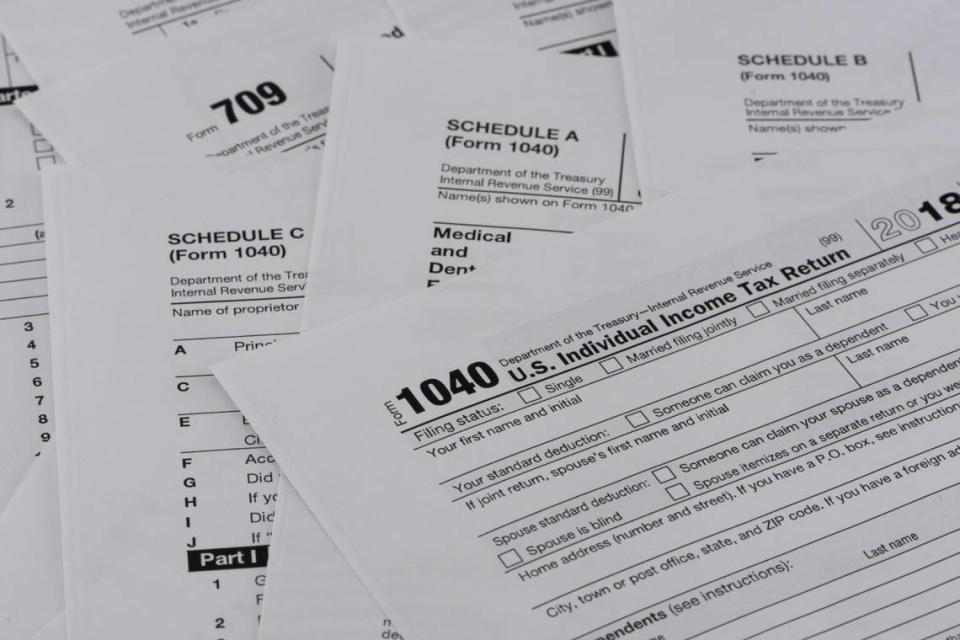1 in 5 qualifying Kansans may miss out on this tax credit. Here’s how you can file for it
While the deadline to file your state and federal taxes isn’t until tax day, April 15, the season is well underway.
The Internal Revenue Service began accepting federal returns Jan. 29, along with the state of Kansas. In fact, early filers may already being seeing their tax returns if they are eligible for one.
For those who have not filed their taxes, however, there is still time to ensure you have maximized all possible deductions and tax credits to get the most out of your state and federal returns.
To make sure you don’t leave any money on the table, we’ve rounded up some common tax deductions and credits many Kansas may be eligible for.
Some common tax write-offs
According to major tax company TurboTax, the “10 most overlooked” tax exemptions are:
State sales tax
Reinvested dividends
Out-of-pocket charity donations
Student loan interest
Moving expenses
Child and dependent care credit
Earned income tax credit
Refinancing mortgage point
Jury pay paid to employer
If you own property, be sure to check all of Kansas’ property tax exemptions, as well. A broad look at those include exemptions for military and farm activities.
Your Kansas grocery bill could shrink just a bit starting Jan. 1. Here’s why, how much
Do I qualify for the earned income tax credit in Kansas?
The Kansas Department of Revenue reports 253,220 returns claimed the state EITC in tax year 2022, equaling about $85 million. The department told The Eagle in an email Tuesday it expects around the same amount this year.
But according to the IRS, in tax year 2020, only 74.6% of Kansans eligible for the federal EITC actually filed for it. Kansas Legal Services reports 1 in 5 qualifying taxpayers miss out on the credit.
To receive this federal credit, the IRS requires:
Annual income off less than $63,398
Investment income of less than $11,000
Valid Social Security number
Been a resident or a U.S. citizen for at least a year
Not file a foreign earned income form
The state EITC has the same salary qualifications as the federal credit, the Kansas Department of Revenue confirmed.
Taxpayers who qualify for the federal EITC also qualify for the Kansas credit. Individuals will get 17% of what they got from the federal EITC, so if they received $1,000 federally, the state would give them $170.
The Earned Income Tax Credit benefits workers who don't earn a lot. Help #IRS spread the word so no one misses out: https://t.co/AqeTmmH4gx #EITC pic.twitter.com/PEfAlaH4VA
— IRSnews (@IRSnews) February 15, 2024
Wichita has several free resources for those who need help with their taxes this year.
The city partners with AARP and VITA (the IRS Volunteer Income Tax Assistance Program) to provide services at three neighborhood resource centers. Those locations are the Atwater Neighborhood Resource Center, the Colvin Neighborhood Resource Center and Roosevelt Evergreen Neighborhood Resource Center.
How to check the status of your refunds
Those who file federal taxes online can typically expect to see their refund in their account within 24 days if they use direct deposit, while Kansas state taxes could pop up as quickly as within 10 days of filing.
Thankfully, you can stay in the loop about your federal and state refunds through online tools.
To check on your federal refund, use IRS’ online “Where’s My Refund” tool. You can use the tool either 24 hours after you file for the current year online, three to four days after you file for the previous year or four weeks after you’ve filed your paper tax return.
You can check your state individual tax refund using the Kansas Department Revenue’s online tool. It’s updated daily, but it may take a couple of days after you file your return to see your information online.

